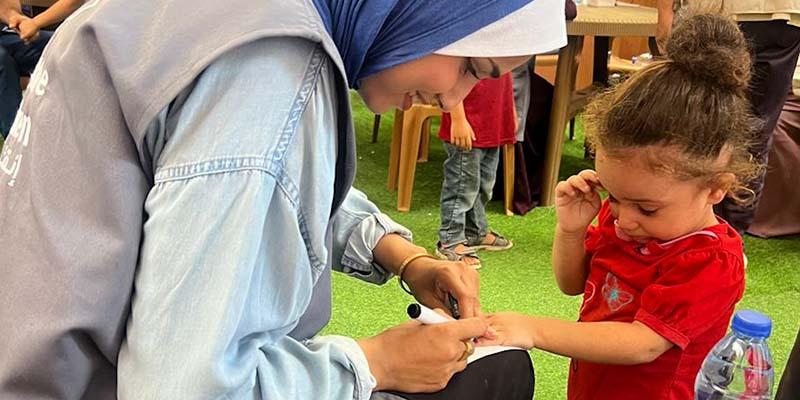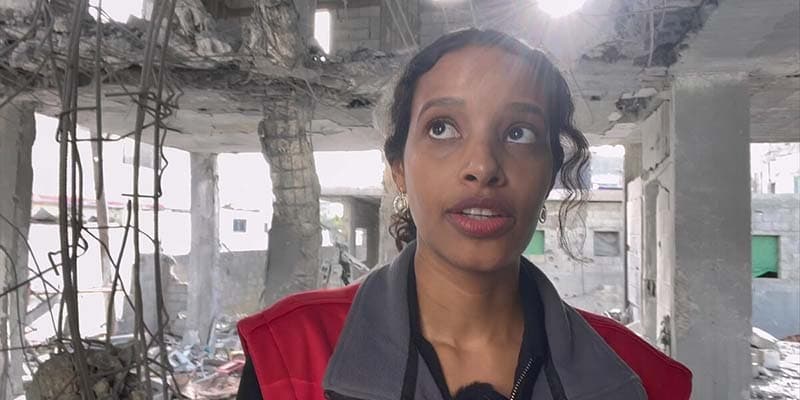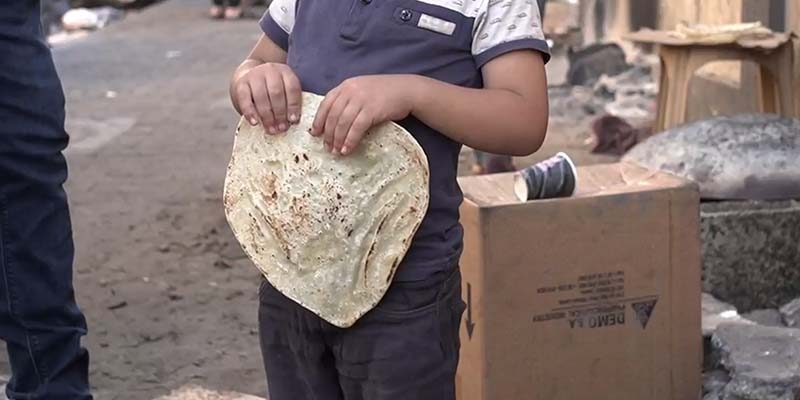
In Gaza, whole communities are leveled by heavy bombardments. There is no time to deal with the grief. Photo credit: Mohammed Zaanoun/Middle East Images/AFP via Getty Images
What Does a Humanitarian Pause Mean for Gaza? Is it Enough?
This week, we learned that there will be daily 4-hour pauses from fighting in northern Gaza.
A humanitarian pause would provide civilians overdue respite from violence and fear. It would expedite the delivery of humanitarian aid. It could facilitate the release of hostages. The list goes on.
But it must be longer than four hours.
Here’s why that isn’t enough.
Children and families are in desperate need of humanitarian aid, and we, along with other humanitarian organizations, need to reach them in order to help them.
Because there is no fuel, humanitarian teams are relying on donkeys and their own feet, traveling with whatever supplies they can carry on their backs.
You can’t cover much ground, if any, in 4 hours.
We cannot reach every child who needs to be reached.
We can’t scale a humanitarian response in 4 hours.
We can’t get the necessary humanitarian teams in and out, safely, in 4 hours.
This is the deadliest ever conflict for aid workers, and they have to be safe in order to provide support.
To mount a response, warehouses must be built, teams of staff must arrive and hundreds of trucks must be brought in.
These efforts are measured in days and weeks, not hours.
In Gaza, there is nothing left. We’re starting from scratch.
At the end of the day, children need more than a respite or a pause.
They need a ceasefire. Full stop.
It’s the difference between life and death.



